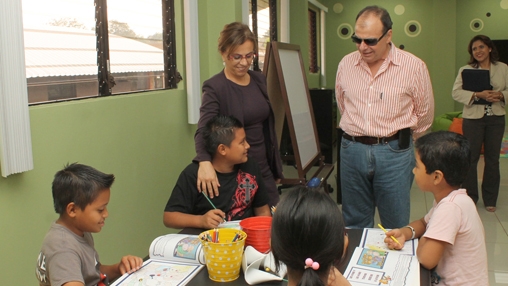Women who suffer physical and psychological abuse, women who work more hours yet earn almost 20% less than men, single mothers and young women who had to drop out of school to care for their children. Historically, the macho culture has prevailed in El Salvador, but that is beginning to change.
Since 2011, an initiative launched by the Social Inclusion Secretariat has created a space, a shelter and a place of hope for thousands of women. The center provides women with access to health care, psychological legal and financial counseling or simply serves as a place to share experiences and find a solution to their problems. Its name: Ciudad Mujer (Women’s City).
This program seeks to guarantee the rights of Salvadoran women through the provision of services such as sexual and reproductive health, comprehensive care in cases of gender violence, economic empowerment and rights promotion.
With four centers – one each in Colón, Usulután, Santa Ana and San Martín – the latter opened last March, Ciudad Mujer has become a successful model because 16 government agencies are concentrated in a single space, ranging from police offices to report abuses to legal and psychological counseling services. The centers are staffed by female personnel exclusively to encourage a trusting environment.
“We all need it,” said a young woman. “If I could, I’d spend all day here,” says another of the beneficiaries of this initiative, which is changing the lives of many women.
Vanda Pignato, First Lady and secretary of Social Inclusion, is admired in El Salvador and abroad for her work in defense of women’s rights and well-being.
“At Ciudad Mujer, we know that gender violence and discrimination can happen at any age. One of the most victimized groups in our country is adolescents and young people,” said Pignato during the opening of a workshop on female soccer. She stressed that actions were needed to ensure that young women know their rights and how to exercise them.


